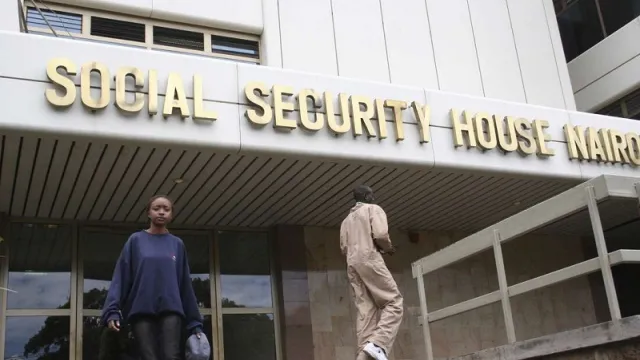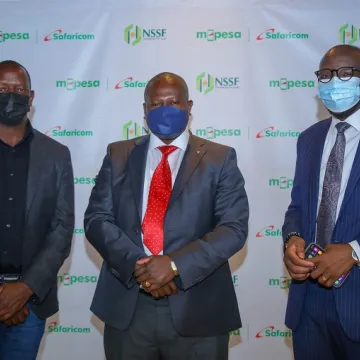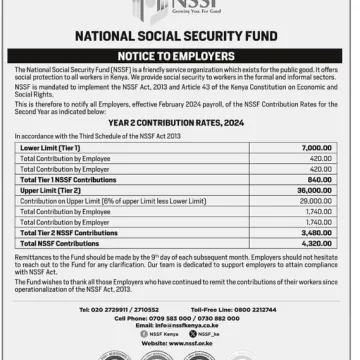NSSF joins Chinese contractor in Nairobi-Mau Summit Highway bid

KeNHA has confirmed that NSSF is seeking government approval to participate in the ambitious upgrade project, which is expected to significantly ease travel between Nairobi, the Rift Valley, and Western Kenya.
The National Social Security Fund (NSSF) has entered the big league of infrastructure investment in Kenya, partnering with a Chinese consortium in a high-stakes bid to construct the 175-kilometre Nairobi-Nakuru-Mau Summit Highway.
The Kenya National Highways Authority (KeNHA) has confirmed that NSSF is seeking government approval to participate in the ambitious upgrade project, which is expected to significantly ease travel between Nairobi, the Rift Valley, and Western Kenya.
In a notice issued on May 27, KeNHA said the first proposal was submitted by a group made up of China Road and Bridge Corporation (CRBC) and the NSSF, while the second proposal came from Shandong Hi Speed Road & Bridge International Engineering Co. Ltd.
According to KeNHA, both proposals will go through the official Public-Private Partnership (PPP) process to determine if they can move forward. The PPP Committee will submit its decision to KeNHA according to the Act.
This process will entail the evaluation of proposals, project development activities, assessment of the project development report, negotiations and drafting of the project agreement, stakeholder engagements, and ultimately obtaining the requisite approvals required under the PPP Act, 2021.
“KeNHA will endeavour to abide by the provisions of Section 69 of the PPP Act which requires a Contracting Authority (CA) to publish information relating to the projects upon award. This will be disclosed at the appropriate time upon conclusion of the statutory processes,” reads part of the notice.
KeNHA stated that the PIPs will be evaluated in line with the local content requirements set forth in the PPP Act, 2021.
The expansion of the Rironi-Mau Summit Road is expected to significantly improve traffic flow, reduce travel time, and enhance regional trade. It is also anticipated to stimulate economic growth by creating jobs and improving access to markets. The project aligns with Kenya's broader infrastructure transformation agenda and its strategic partnership with China.
However, upon its completion, motorists planning to use the new four-lane Nairobi-Nakuru highway will be forced to pay toll fees for the next 30 years. The rates are to be determined in line with the National Tolling Policy. KeNHA says the escalation of toll rates would be done as per the policy.
The Kenyan government approved the expansion of the Rironi-Mau Summit Road, a critical segment of the Northern Corridor that connects Nairobi to western Kenya and neighboring countries.
The project aims to transform the existing 175-kilometer A8 highway from a two-lane single carriageway into a four-lane dual carriageway. Construction is set to commence in June 2025, with an expected completion timeline of 24 months.
The government projects that the project will complete within the stipulated time, targeting June 2027 as the completion date.
The project was first awarded to a consortium of French firms during former President Uhuru Kenyatta's administration. However, President William Ruto regime canceled the contract citing high toll fees and unfavorable risk allocations. Subsequently, discussions were initiated with Chinese entities, leading to the involvement of CRBC and Shandong Hi-Speed Road &Bridge International Engineering Co. Ltd.
The project is being pursued under a Public-Private Partnership (PPP) model. The PPP approach aims to leverage private sector investment to enhance infrastructure development while minimizing public debt. So far, the African Development Bank has approved $150 million to support the development of the A8 and A8 South highways.
Speaking on May 15, Deputy President Kithure Kindiki directed Transport Cabinet Secretary Davis Chirchir to oversee the construction and ensure the timely delivery of the KES90 billion project.





